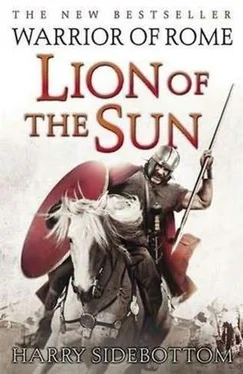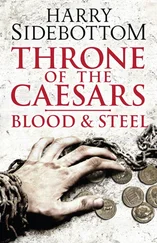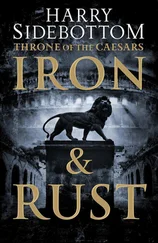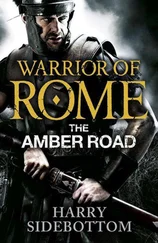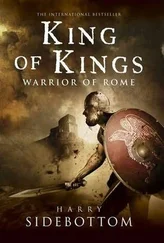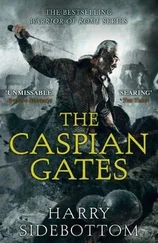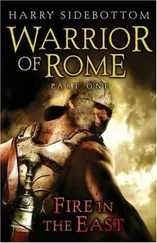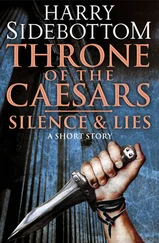Harry Sidebottom - Lion of the Sun
Здесь есть возможность читать онлайн «Harry Sidebottom - Lion of the Sun» весь текст электронной книги совершенно бесплатно (целиком полную версию без сокращений). В некоторых случаях можно слушать аудио, скачать через торрент в формате fb2 и присутствует краткое содержание. Жанр: Исторические приключения, на английском языке. Описание произведения, (предисловие) а так же отзывы посетителей доступны на портале библиотеки ЛибКат.
- Название:Lion of the Sun
- Автор:
- Жанр:
- Год:неизвестен
- ISBN:нет данных
- Рейтинг книги:5 / 5. Голосов: 1
-
Избранное:Добавить в избранное
- Отзывы:
-
Ваша оценка:
- 100
- 1
- 2
- 3
- 4
- 5
Lion of the Sun: краткое содержание, описание и аннотация
Предлагаем к чтению аннотацию, описание, краткое содержание или предисловие (зависит от того, что написал сам автор книги «Lion of the Sun»). Если вы не нашли необходимую информацию о книге — напишите в комментариях, мы постараемся отыскать её.
Lion of the Sun — читать онлайн бесплатно полную книгу (весь текст) целиком
Ниже представлен текст книги, разбитый по страницам. Система сохранения места последней прочитанной страницы, позволяет с удобством читать онлайн бесплатно книгу «Lion of the Sun», без необходимости каждый раз заново искать на чём Вы остановились. Поставьте закладку, и сможете в любой момент перейти на страницу, на которой закончили чтение.
Интервал:
Закладка:
Yet the grey light of pre-dawn had come all too soon. It revealed the hills in the west, but they were still a way off. All around them lay the emptiness of the plain. There were a few shrubs, the odd wind-bent tree; nothing to hide them. About a mile ahead, stark and incongruous, was a lone building. Anyone with any pretensions to fieldcraft knows not to hide in a solitary building; it is the first place searchers will look. Nevertheless, Calgacus led them straight towards it. There was nowhere else.
The building was a large, rectangular mud-brick barn. It had contained animals and people but now it stood empty. They led their horses in by the one, wide door. Inside, they hoisted a lookout up on to the beams. Some of the tiles were missing; Calgacus pushed out a few more in order to be able to see all around. The elevation increased the depth of his view. The other men rubbed down their horses and searched for food. There was none. There was a well outside, but there was always the possibility that it might be poisoned. They still had water in their bottles, but they had eaten their last scraps of food the night before. They could cut grass for the horses, but the men would have to go hungry.
Maximus had taken the second watch. He had to shift around the roof to keep an eye on all approaches, and it was just as well: falling asleep would bring with it the risk of a nasty fall. Another of Demetrius's stories floated into the Hibernian's mind. On Circe's island, one of Odysseus's crew had fallen asleep on the roof of the palace. He had tumbled off and broken his neck. Sometimes when Demetrius told the story, the man had been bewitched and turned into a pig. There was a thought — roast pork: hot, blistered crackling, the fat running down your chin. Infernal gods, Maximus was hungry.
Somewhat distracted by the demands of his stomach, it had taken Maximus a few moments to take on board what his eyes were seeing. The peasant couple with the donkey, the man riding, the woman walking behind, were quite close by. Maximus dropped down from the beams. He woke Demetrius and gave him a leg-up into the roof. Turning, he found Calgacus on his feet. A word or two of explanation passed between the two men, and they walked outside.
At the sight of the strangers, the peasant stopped his donkey with a word and his wife, her eyes downcast and inattentive, with a stick. His tattooed face registered no surprise. Like the goatherd the other day, thought Maximus, they bred them incurious out here.
'Good day, grandfather,' Calgacus said in Greek.
The peasant replied with a muted flow of words in a language neither of the other men understood. Now they were closer, they could see that it was not tattoos on the man's face but dirt ingrained in every line.
Maximus tried a greeting in Persian. An emotion seemed to run across the peasant's face. It was gone before Maximus was even sure it had been there. Quietly the woman began to sob. The peasant hit her with his stick.
With gestures and broken sentences in a range of languages, Maximus asked if the couple had any food. The man's response, which involved much eloquent waving of hands and minimal grunting of incomprehensible words, was an extended denial. As far as Maximus could make out, riders had come from the east; they had taken all the food, beaten the peasant and his wife. They had done something else, too, taken something, a child. Boy or girl, it would have not gone well for them.
The woman started to weep again. She quietened at the sight of the stick.
Calgacus invited them into the barn. The peasant made it clear that he and his wife would remain outside.
There they sat, hands on their knees, up against the wall of what could well have been their own home. As the sun arced across the sky, they moved around to keep in the shade. At intervals, the woman wept. Depending on how his emotions took him, the peasant would either soothe or threaten her. Maximus spent much of the day watching them, grieving for their naked misery. Even a man of violence such as himself could sometimes see the evil, naked face of the god of war — Mars, Ares, Woden, call him what you will: war is hell.
As the day faded, the men had tacked up, led their horses outside and swung into their saddles. Calgacus led them off to the west. Neither the peasant nor his wife showed any emotion at their departure.
Finally they had reached the hills. Finding an upward path despite the darkness, they took it. As the rocky slopes cut down their vision, they proceeded cautiously, placing two men out on point duty, fifty or more paces in front. And then they had come across the Persians.
Maximus looked away from Calgacus and back down at the enemy. The Sassanids were relaxed, perfectly unaware that they were being observed. They stood around where the three paths met, passing a wineskin back and forth. One of them raised his voice in song: ' Dreaming when Dawn's left hand was in the sky I heard a Voice within the tavern cry, "Awake my Little ones, and fill the Cup "Before Life's Liquor in its Cup be dry."'
The Persians laughed.
That's it, you goat-eyed bastards, thought Maximus, drink up every drop. Before Dawn's left hand is anywhere in the sky, in the next quarter of an hour, if you don't move, we are going to try and kill you — and we want you as drunk as possible when the sharp steel gets close.
Even if they did move, it was quite likely there would be a fight. If the Sassanids took the path to the north, all well and good. If they went west, the Romans might hope to follow and, once out of the hills, somewhere down on the narrow plain before the Euphrates, slip past into Zeugma. But if the Sassanids rode east, then there was no choice, there must be bloodshed.
One of the dark-grey shadows changed shape: a Persian leapt up into his saddle. He too sang, a voice less mellifluous than that of the first, but with a ring of authority: ' And, as the cock crew, those who stood before The Tavern shouted — "Open then the Door! "You know how little while we have to stay, "And, once departed, may return no more. "'
The Sassanids all mounted. They milled, sorting themselves into position.
Maximus, palms slick, held his breath.
The eastern troop clattered off to the north.
Demetrius, as so often, was at the back holding the horses. As well as his own and Calgacus's mounts, he had the reins of the grey gelding Ballista had insisted that Maximus ride. In the near-darkness, every time Pale Horse shifted, stamped a hoof or just breathed loudly, thoughts of the animal's owner crowded, insistent and importuning, into Demetrius's mind. There was pity, a terrible aching pity, for the big blond barbarian who had once owned the young Greek as surely as he had owned the horse. And there was gratitude. Enslavement and his first three years of servitude were things Demetrius preferred not to think about. It had been such a bad time that usually he found it easier to give out, sometimes even to pretend to himself that he had been born into slavery — if you have known nothing else, how can it be that bad? After three years he had been purchased as a secretary to Ballista. The big barbarian had treated him well for nine years. He had given Demetrius no reason to dwell on the old saying 'A slave should not wait for his master's hand.' Finally, four days earlier, on a burnt hillside, surrounded by the remnants of a defeated army, Ballista had given Demetrius the thing he wanted above all others: his freedom.
A noise from further up the path brought Demetrius back to the fearful present. He could see nothing. The narrow upland path was blocked by the remaining four Dalmatian troopers and their horses. The stars and young moon gave little light. Suddenly, there was a rattle of dislodged stones. Fear rose inside him, gripping his throat as he watched the troopers ready their weapons.
Читать дальшеИнтервал:
Закладка:
Похожие книги на «Lion of the Sun»
Представляем Вашему вниманию похожие книги на «Lion of the Sun» списком для выбора. Мы отобрали схожую по названию и смыслу литературу в надежде предоставить читателям больше вариантов отыскать новые, интересные, ещё непрочитанные произведения.
Обсуждение, отзывы о книге «Lion of the Sun» и просто собственные мнения читателей. Оставьте ваши комментарии, напишите, что Вы думаете о произведении, его смысле или главных героях. Укажите что конкретно понравилось, а что нет, и почему Вы так считаете.
